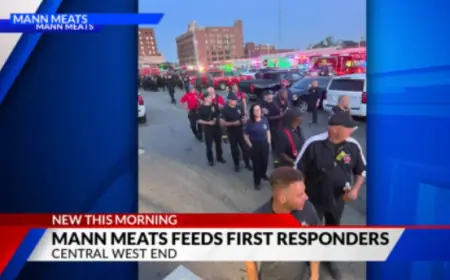There is a new evil empire in baseball, and it could block Phillies’ path to World Series
The Phillies are one of baseball’s behemoths. When the offseason is over and spring training begins, the Phils will likely have a payroll over $305 million. If all things remain […] The post There is a new evil empire in baseball, and it could block Phillies’ path to World Series appeared first on Billy Penn at WHYY.


The Phillies are one of baseball’s behemoths.
When the offseason is over and spring training begins, the Phils will likely have a payroll over $305 million. If all things remain the same, it will be the second-highest payroll in baseball. It will be higher than the Yankees, Mets, Red Sox and other traditional big spenders. After decades of pinching pennies while at Veterans Stadium and acting like a small market team, John Middleton’s squad is now one the game’s titans, and will remain so for the foreseeable future.
And yet, they are dwarfed by baseball’s new Evil Empire.
Over the weekend, the defending champion Los Angeles Dodgers continued to add to their war chest of talent. They acquired Roki Sasaki, one of the youngest and best pitching prospects to ever come out of the Japanese Professional Baseball League, and signed the top relief pitcher on the market, Tanner Scott, to a four-year contract. Today, they added yet another top relief pitcher in Kirby Yates, to a multi-year contract.
This is on top of spending $700 million on Shohei Ohtani a season ago, and signing two-time Cy Young Award winner Blake Snell to a $182 million deal this winter, re-signing outfielder Teoscar Hernandez for $66 million and another reliever, Blake Treinen, for $22 million. As of now, their payroll stands at $375 million.
Moneyball
Now, I’m going to get a little baseball finances wonky on you here, so stay with me.
The Dodgers front office is only paying a portion of this money up-front. In fact, they have just over one billion dollars in salary (including $680 million of the $700 million owed to Ohtani) tied up in deferrals, to be paid out either at the end of these players’ multiyear contracts or, in Ohtani’s case, in the 10 years after retirement. As a result, their actual luxury tax payroll for 2025 stands at about $312 million, which is still about $7 million more than the Phils.
Back in the 1990s and 2000s, the Yankees were often referred to as “the Evil Empire” because of their willingness and ability to spend money and to seemingly buy any player they wanted. They created their own “superteams” on a yearly basis, and it helped them win four World Series in five seasons, from 1996 to 2000. They were universally hated by everyone who was not a Yankees fan, because every fan felt they held an unfair advantage over the rest of the league.
However, rules have changed. Revenue sharing theoretically allows the “poorer” teams (teams that are still run by billionaires and families with billions of dollars at their disposal) to spend on their payroll, but many don’t. The Marlins, Pirates, Rays and A’s are the worst offenders, but there are franchises every year that simply decide they’d rather save a buck and finish 70-92 every year.
Some fans are interested in introducing a salary cap to Major League Baseball, much like what the NFL and NHL have in place. But the current luxury tax, which was not in place when the Yankees were doing their thing, now acts as a pseudo-salary cap. While it doesn’t prevent rich teams like the Dodgers, Phillies, Mets and others from spending whatever they want, it does force them to pay a progressive tax any time they go over specific spending limits.
The Phillies clearly have a need in the outfield, and yet they did not pursue players like Hernandez or Anthony Santander, who over the weekend signed a five-year, $92.5 million contract with Toronto, or a free agent reliever like Scott, because the tax would essentially double the price the Phils would have to pay. In other words, Santander’s $18.4 million salary in 2025 would actually cost the Phillies roughly $38 million, unless they, like the Dodgers have done, deferred some, most or all of the money and kicked the can down the road.
A different gameplan
Yes, the Phillies could also be an “evil empire” if they wanted to be, but Middleton doesn’t have the financial resources the Dodgers or Mets do, so apparently deferring money isn’t in the cards. And yes, every team in baseball could make competitive offers if they wanted to, but they are choosing to be outbid by the Dodgers. And to be clear, their offers to some of these players are not beyond what the market anticipated. They are paying fair market value.
In short, any team could be the Dodgers if they wanted to be.
But that’s not to say the Phils are cheap and don’t want to spend. I don’t blame the Phils for balking at deferrals, especially deferrals of over $1 billion. The Dodgers either assume the world is going to be hit by a comet in the next 10 years or are willing to take the kick in the teeth when the bill comes due in the 2030s.
For right now, though, the Dodgers have chosen to simply buy every player they want in an attempt to never lose another World Series again. Of course, we all know that anything can happen in a five- or seven-game series, and that all the billions of dollars spent on players can blow up in your face in a short playoff series.
That said, the Dodgers have given baseball a new “evil empire” to root against. Of course, we’d be thrilled if the Phillies wanted to become an “evil empire” too, but for now, they’ll settle for simply being a giant looking up at a larger giant.
Make sure to catch our full conversation on the implications of the Dodgers’ free agent signings and the possibility of salary caps coming to MLB on the latest Hittin’ Season podcast below! Subscribe and download now!
The post There is a new evil empire in baseball, and it could block Phillies’ path to World Series appeared first on Billy Penn at WHYY.
What's Your Reaction?






































































































